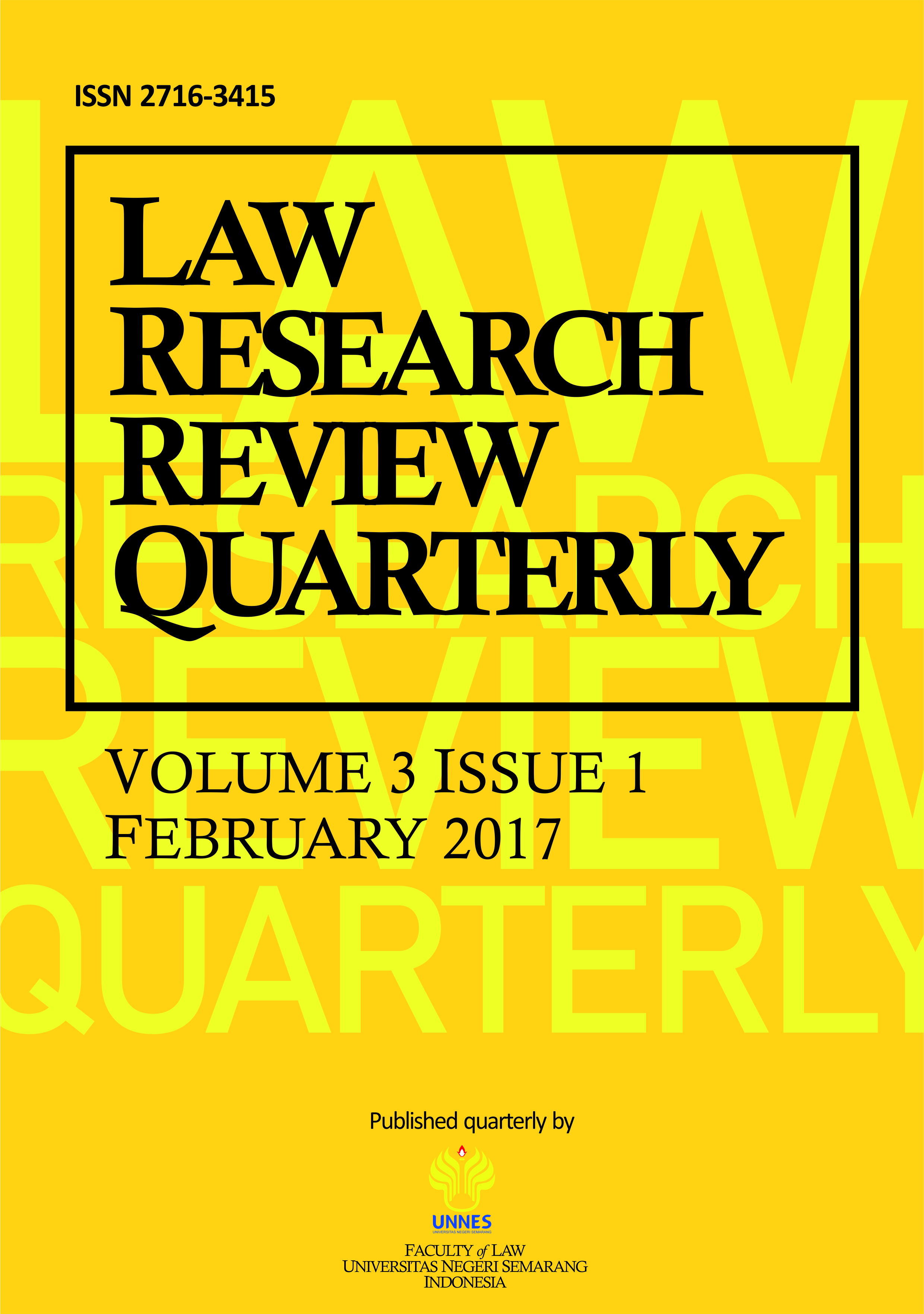Deradicalization as a Non-Penal Effort in Combating Terrorism Criminal Acts in Indonesia
Main Article Content
Abstract
Terrorism is an extraordinary crime that is different from ordinary crime. Perpetrators of ordinary crimes such as murder and theft are aware that what they do is evil and wrong, while the perpetrators of terrorism mostly feel that their actions are religious orders and will get a reward in the form of heaven from God Almighty. The issue of the inner attitude of the perpetrators of terror makes up until now the criminal acts of terrorism continue to grow and develop and even begin to spread to female perpetrators. Terrorists continue to build networks and recruit new members to launch the action. Seeing this phenomenon, the method of combating terrorism is not enough to only be done through the path of punishment but also the path of non-punishment. Even this non-penal pathway must be a top priority. The government must cut the chain of wrong understanding of religious teachings through deradicalization efforts. Deradicalization is done by involving all elements of the nation, both law enforcement officials, actors and society. Actors in this case must involve the families of perpetrators, while elements of society involve religious leaders who are qualified and understand the issues of religion and the state. The process of deradicalization will give terrorists awareness that the crimes committed so far are wrong and not in accordance with religious teachings. This awareness will also bring the wider community not easily carried away by a narrow and radical understanding of religion.
Article Details
All writings published in this journal are personal views of the authors and do not represent the views of this journal and the author's affiliated institutions. Author(s) are retain the copyrights of the Article. However, before publishing, it is required to obtain written confirmation from Author(s) in order to ensure the originality (Author Statement of Originality). The statement is to be signed by at least one of the authors who have obtained the assent of the co-author(s) where applicable.This work licensed under a Creative Commons Attribution-ShareAlike 4.0 International (CC BY-SA 4.0)
